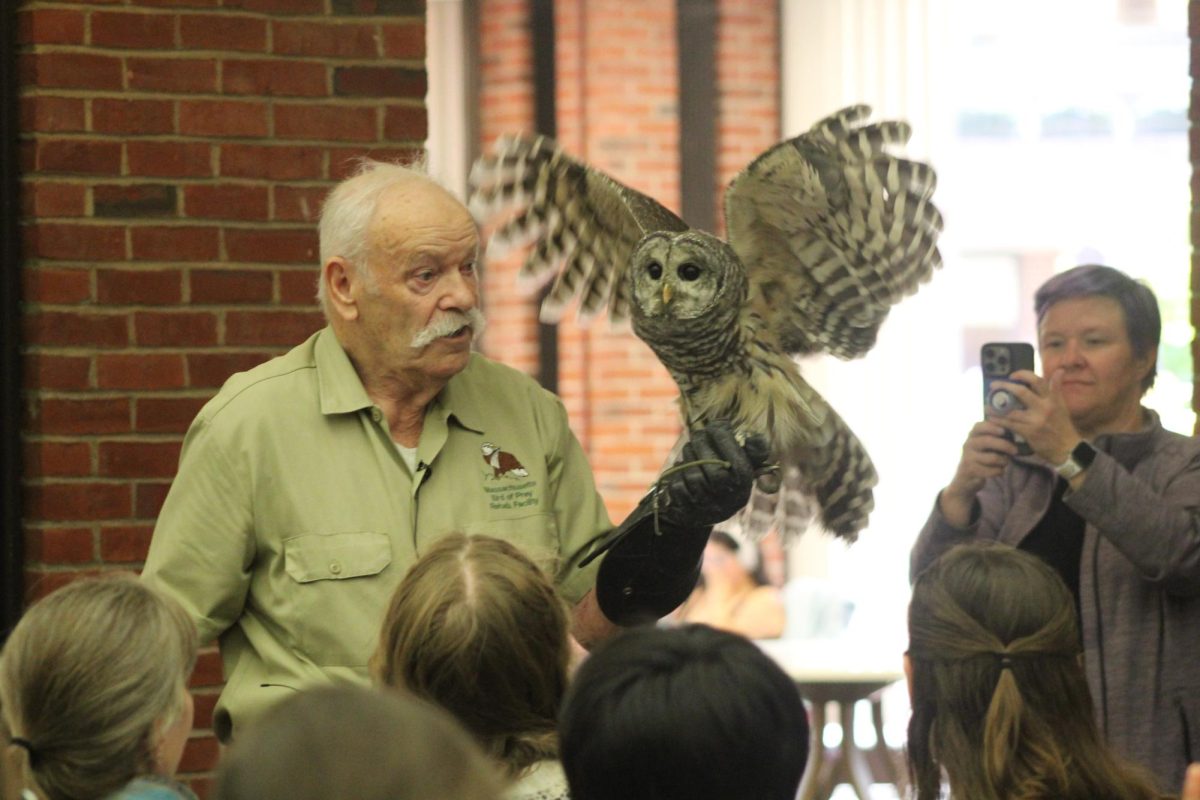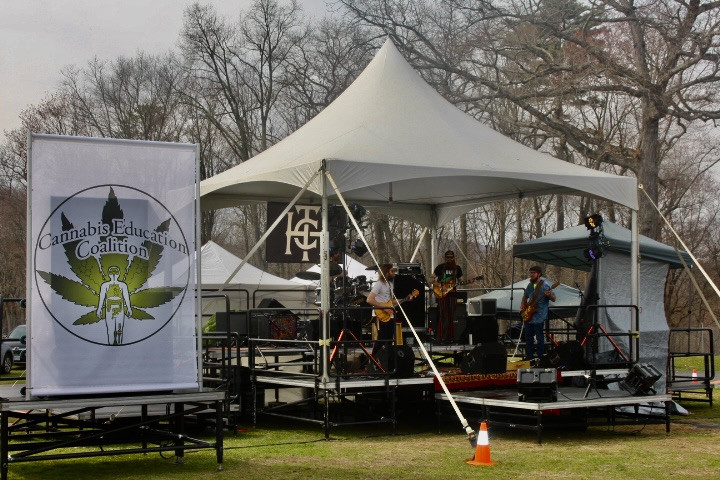by Justin Surgent
The board is small, sharply built, basically a plank of wood with wheels on it. The parts are loose and it’s been created for casual riding, lacking the mechanical precision needed to bomb down hills at close to 30 miles per hour. But a 14 year old Russell Phelan doesn’t know this. He begins pushing himself around on the top of his steep, 1/4 mile long driveway in Harvard MA, enjoying the feeling of freedom skating brings him, not yet with the understanding of skating physics to see this is not the type of board for downhill longboarding. Phelan looks at the plank beneath his feet, and looks at the steep long driveway before him. He knows how to ride, he knows how to steer, and he’s pretty sure he can stop.
He brings the board to the edge of the drive way, leans down and pushes off. He does his best to carve turns into the side of the hill, but soon feels the old parts of the board start to rattle in shake. Moving at close to 25 miles per hour, he thinks to himself, “in 30 seconds in the future I’m going to eat it.”
And he does, landing in a ditch by the bottom of the road near a pond, the crash course end to his first foray into long boarding. It isn’t until he’s laying on the ground, taking a second and realizing no bones are broken and his body is still in perfect working order, that he gets up.
“This is crazy. I’m totally down for round two.”
“The first board I ever made was completely unrideable,” said Russell Phelan, owner of Eden Racing, company that handcrafts high end skateboards in Amherst, MA. As he speaks, he leans against a table covered in partially finished skateboard parts. Thin, with dark hair, Russ speaks softly with control. He looks tired, but his eyes are wide awake as he talks about skating. He goes on to say it took close to 20 boards to make something that could actually be ridden, and plenty of prototypes to find his own style of board. And in the past three years, the boards have come a long way from the unridable prototypes they began as. This 22 year old junior at the University of Massachusetts is doing what many young people are going to school for to begin with; bringing his dream to life.
Eden Racing is, for all counts of the word, a small business. Owned and run by Phelan himself, a junior at the University of Massachusetts, the business is a one man operation aided with the much needed labor of friends and roommates. Since October of 2010 the company has been created high end, hand crafted skateboards at reasonable prices, about $110 for a complete set up.
“It’s not any kind of a big operation or anything,” said Phelan. “We work out of our garage out here in Amherst, and we make them completely by hand. We sketch them out on graph paper, cut them out in a woodworking shop with a table saw, a router and some sanding tools, and that’s the entire operation.”
These skateboards, however, are not the usual idea of a skateboard. This isn’t what Tony Hawk would ride, and skaters don’t take these into skateparks and flip them around. These are high performance longboards, meant for speed and control.
Longboarding itself a style of skating characterized by the use of longer, uniquely shaped boards that offer unparalleled speed and control. In place of half pipes and grinding rails, longboarders are always in search of paved steep, winding roads in order to practice their highly exercised skill of high-speed board control. It’s more akin to snowboarding than the popular skateboarding of the late 1990’s, only if a skater falls longboarding there is no padding layer of snow to comfort their fall.
Originally a student at City College in New York City studying audio technology, Phelan fell in love with the longboard scene and the community it brought with it.
“In New York there are so many skateboarders, so if you put up a Facebook event to say ‘let’s go skating’ 300 people will show up, no problem, for anything. There’s tons of interest, so I got really into the longboarding scene. You just say ‘hi’ to someone on a longboard somewhere and you become friends.”
And after some time of dedication to the longboarding scene, Phelan found himself with a “reputation,” positive of course, and began skating for a company, NYC Longboards.
“They had me doing product placement there, they’d have me rep stuff for kids, being like ‘yo this is the model you need to buy, maybe not the best thing for your needs but this is the model we have in stock, this is our inventory, so you need to buy it.’ It was kind of a weird vibe to me. I’m not really into that kind of thing.”
“Especially coming from skateboarding, because it’s such a cultural phenomena to begin with. You don’t want to corporatize that. You can smell that, you can tell. Even kids can tell. You can’t hide that intention.”
So after riding for NYC Longboards for a time, being promised his own product line and more control over the products he was repping, Phelan realized every promise they made was empty. It was time to leave New York and come back to Massachusetts to build the dream himself.
“Skateboarding to me, is simple. Like this business, it’s simple,” said Phelan who began his skating career in 2005 at the age of 14. “I like longboarding specifically because it’s the opposite of street skating. Street skating is about technicality. It’s about how far can I push this board. How many flips can I do, how high can I jump, how many new skills can I bring? Can I do this backwards, left handed, in some harder way? And that’s cool, that’s kind of how computer science and school is to me. It’s like how can I get smarter, how can I get better? And that’s fine. But longboarding is the opposite of that. Longboarding is about cruising.”
To put it bluntly, skating to Phelan isn’t just a sport or a hobby. It’s become a way of life. The freedom, the speed, the danger, it’s all drawn him in and keeps him coming back for more. And over time, skating has become an undeniable part of him.
“You just slash around, pretend like you’re surfing on the water or whatever it is that gets you off. It doesn’t matter. You just go out into the night and ignore everything, and feel what it’s like to control yourself on a skateboard, to turn yourself and balance yourself and be one with this board. And it becomes like walking”, said Phelan.
But walking doesn’t take the balance, skill and drive for adventure skating does. However, with Phelan it has become second nature.
“It’s amazing that this man-made invention can become so much a part of your body that you flow with it, and you feel with it and it’s a core feature of who you are, and it doesn’t take long to learn. It’s almost as if it was meant to be, and that’s beautiful to me.”
The workshop where the boards of Eden Racing are born is surprisingly small. Made up of half the basement of a house in Amherst, the shop is approximately 12×40 feet at it’s best. The cramped room is filled with wood working tools and skateboard parts and partitioned in the center with a large piece of plastic, which Phelan explained is to keep the wood dust away from the boards when they go through the finishing and painting stages. On one end of the partition is the band saw, router and a table with sanding tools. This is the woodworking section, where the boards are cut and shaped from the Canadian hard rock maple Phelan uses to craft them. Next to the bandsaw a few finished decks lean up against the wall, and a light scent of cut wood hangs in the air.
On the other side of the partition is the finishing section. This is where the polyurethane and paints are applied to the boards, or whatever a customer wants to add to a board to make it their own. Phelan displayed one deck, currently being designed by a local artist named Tristan Burke. A rainbow design of lines and colors, Phelan explained Burke did it all with Sharpies.
“It’s sick. Really, we can do whatever we want here.”
Originally beginning his projects in his parent’s basement, Phelan moved the workshop to his current location when he transferred to UMass. The house, which he shares with roommates, allows Phelan to have his workshop kept in the basement with very little overheard.
“That’s how businesses should think more often,” Phelan said on the price of running a business, “keep costs low, and then you can sort of bide your time and make less of your debts.”
There are only a handful of companies in the U.S. that actually produce skateboards, which leads to most skateboarding companies ordering their decks through them and then applying their own finishing touches to make them uniquely their own. Mass produced using larger than life machinery, these factories can churn out boards at a rate that Phelan at this point can only dream of. However, for Phelan, the sense of community and passion put into his boards are what make his different. That, and that everything is done by hand and to whatever specifications the buyer needs. “It’s a constant evolution of new styles and new innovations, and that’s what it has to be,” he explained. It’s all about creating new things.
The work involved to make handcrafted, high performance skateboards is daunting. With everything done by hand, the process is slow, with the finishing stages of the board taking the longest, requiring five coats of polyurethane with two hours of drying needed after each. Every board is a masterpiece, each masterpiece takes time, so the production rate isn’t huge. Neither is the cash flow, so it’s certainly not money that keeps him hard at work.
“It doesn’t make a lot of money, it isn’t this huge blossoming thing yet, but it does what I intend for it to do,” said Phelan, “to sell quality products at a cheap price that matter. Things you can take and feel you’re actually getting a performance improvement. It’s not just pretty colors, an interesting shape. You skate it and realize this is smoother, this is faster, this feels better.”
“It’s just me as a company, but there’s tons of labor that helps out -roommates, friends, kids that we meet at parties or class- because being a handmade operation, if we have to make 20 boards that’s a huge deal,” Phelan said. “So much hand sanding and shaping, it amounts to hours and hours of work. I’d say it would take us a week, eight hours a day, to make 20 solid boards.”
And they do make the boards. In between the hectic class schedules of chasing a computer science degree, working a job as a web developer and trying to keep a social life alive, Phelan still manages to keep the company in business, which is tough and Phelan has felt the pain. Balancing Eden Racing with his other job as a web developer creating flash games for middle schoolers would be tough enough, but Phelan also has his full course load in computer science and works in exercise and competing in triathlons whenever he can. With only 24 hours in a day, his time is pressed. As he put it, “sleep is not a thing here.”
“Stuff goes wrong all the time and I can’t fix it, because there simply is not time,” said Phelan, “but I’ve come to terms with it.”
That doesn’t, however, seem to affect the quality of his product. Reviews across the website are all positive, and Phelan does his best to keep up with customer service after his products have left the shop, following up with customers online. Customers across the globe have been satisfied with his work, from all across the continental United States, to Great Britain, Singapore, and even Australia.
Unlike many of the students studying business in college, it’s not the bottom dollar that Phelan is concerned about. It’s the product, and the life around it. His passion goes into every board, and the success of his business is reliant on his dedication and love for skating.
And when it comes to helping others, Phelan is all for it. His business revolves on an “open source” philosophy, which means he’s completely, 100 percent open with how he does anything and everything, which is an idea that would make most business major’s heads explode.
“I’m against obscuring information,” he explained. “I want people to have information. I want to be a teacher.”
Phelan went on to explain that all of his information on creating skateboards was learned from others, so this motto is a type of pay-it-forward in a sense. Originally he made a list of PDFs he put online detailing his process to the last detail, but realized the information wasn’t getting out there as he wanted it. So that’s when he created an Eden Racing Facebook page as an open forum, where he answers any and all questions on his building techniques. And as far as competition goes, he welcomes it, seeing it as a drive for improvement rather than a business disaster.
Today’s skateboarding community is heavily reliant on social media. In many areas, skating is illegal, and many skating sessions are set up in a near flash-mob style of meeting up at an area, skating for a short time, and dispersing before they get in trouble.
Pools of people across the country use the social media site to plan meet ups and skating sessions. Phelan has found use for social media in his own skating business by opening a Facebook page for open forum on Eden Racing. There, followers are able to present new design ideas or opinions on what should change, as well as having a place to talk about their communal love of the sport. And Phelan does his best to work in these designs brought to him via the social media outlet.
Even the company’s name had an origin in the communal brainstorm of the skating scene. Originally planning to call it “East Racing,” he felt it was a bit polarizing, separating the east coast and west coast (and inherently larger) skating scenes.
“A lot of people think it’s biblical, but it kind of predates that,” Phelan said, “It’s just about the idea of paradise, being where you wanna be, feeling what you want to feel, and I hope that’s how people feel when they use the things I make.”
As a community, skaters tend to have each other’s backs. As an undeniably dangerous sport, it’s important to skate within one’s boundaries, knowing which risks to take and how far to take them. While accidents are high, deaths are low, and most crashes tend to end up with just scraps and bruises.
“Even if you bail at 40 miles per hour,” Phelan said, “if you don’t hit a stationary object, you’re going to be fine. And of course, we know how to do that.”
But for Phelan, it’s the danger that draws him in. It’s the knowing he is in control of his own body, of his own destiny, and that there’s nothing in between him and death than his own skills, on a board he made himself. Bombing down a hill at close to 40mph brings him a sense of life unparalleled with anything else he’s done. It frees him, mind, body and soul.
“To put your life in your own hands, to be in control of it. What’s between me and death, of certain injury? My skills. Me, the way I’m thinking, the way I’m on this board, the way that ride it,” said Phelan. “That’s it. I’m completely present. I can’t not be. And that’s when you’re completely hooked.”
photo by Justin Surgent
Justin Surgent can be contacted at [email protected]







